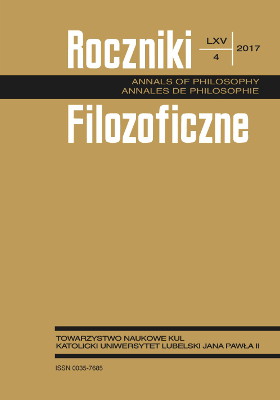Kontyngencja, wolność, indywidualność — Jan Duns Szkot a tradycja arystotelesowska
Contingency, Free Will and Individuality: John Duns Scotus and the Aristotelian Tradition
Author(s): Martyna KoszkałoSubject(s): Philosophy, Metaphysics
Published by: Towarzystwo Naukowe KUL & Katolicki Uniwersytet Lubelski Jana Pawła II
Keywords: John Duns Scotus; Aristotle; synchronic contingency; free will; God’s will; individuality
Summary/Abstract: The aim of the paper is to show the main differences between the concepts of contingency, free will and individuality in John Duns Scotus and in the Aristotelian tradition. I outline the parts of Scotus’s view, which constitute a clear departure from the traditional Aristotelian outlook: (a) the rejection of the principle of plenitude; (b) the construal of the present as contingent; (c) the development of the notion of synchronic contingency; and (d) the separation between immutability and necessity. In his anthropology Scotus emphasizes: (1) the notion of free will as autonomous and self-determining; (2) the rationality of the will, which consists in its dependence on the intellect or knowledge; and (3) the rejection of Aristotelian eudaimonism. God is treated by Scotus as capable of knowing and loving individual, contingent beings. In his axiology Scotus stresses positive aspects of the individuality, plurality and uniqueness of each individual being.
Journal: Roczniki Filozoficzne
- Issue Year: 65/2017
- Issue No: 4
- Page Range: 37-59
- Page Count: 22
- Language: Polish

